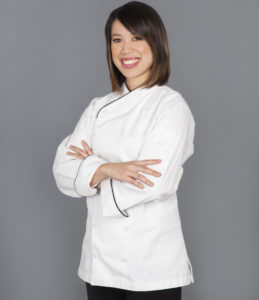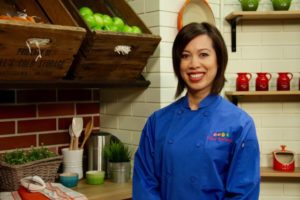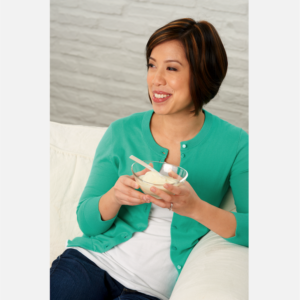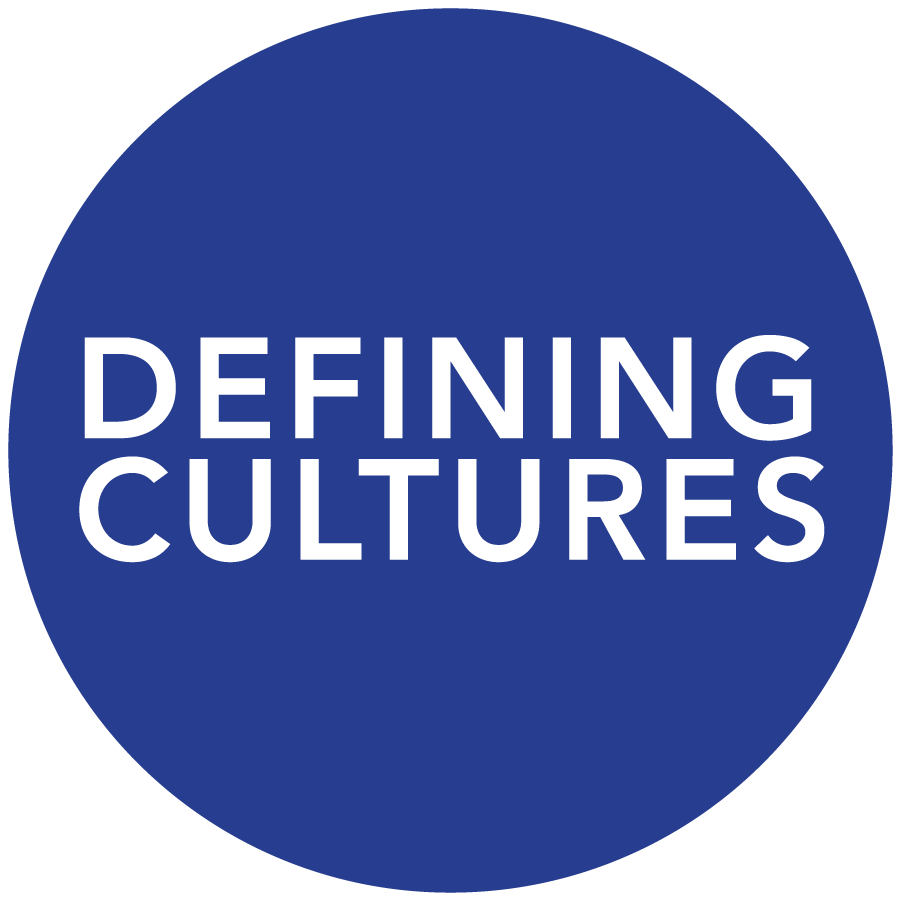
The word “inspiring” can’t even begin to describe Christine Hà. Born seeing all colors of the rainbow, life threw her a curveball when she was diagnosed with Neuromyelitis Optica, which caused her vision loss at the age of 28. Rather than bringing life to a halt, Christine was determined to have a career that was fulfilling. She would go on to launch a food blog called The Blind Cook, compete on Gordon Ramsay's MasterChef season 3 and WIN! – making her the first ever blind contestant and winner of the popular TV show.
Read Christine's bio on Defining Cultures
Christine’s journey is definitely one for the books and reminds us that even when we encounter obstacles, we must never give up. This interview only begins to scratch the surface of this phenomenal woman.
Tell me a bit about your upbringing and educational background.
I was born in Long Beach, California, and grew up in Houston, Texas. I went to very diverse schools growing up.
My parents wanted me to be a doctor, but I enjoyed English more and was better at it than the math and sciences. I went to The University of Texas at Austin and received a Bachelor of Business Administration in Finance and Management Information Systems. After losing my vision, it caused me to rethink my path in life, so I returned to school and attained a Master of Fine Arts in Creative Writing from the University of Houston.
Now I am exactly where I would want to be: a writer, a cook, and an advocate.

To what extent did/does your family support your ambitions?
Funny enough, once I went to college, my father completely supported me in my scholastic decisions. Then ever since I was diagnosed with the autoimmune condition, Neuromyelitis Optica, which caused my vision loss, my entire family has supported me in whatever I wanted to do with my life. Their main concern was that I remain healthy and happy.
What are some of the personal struggles you faced growing up, trying to fully accept your cultural identity?
As a child of Vietnamese heritage growing up in America, I often wondered why I would never be as beautiful as my Caucasian Barbie. I was embarrassed about the foods my mother packed me for lunch: rice, fish sauce, spring rolls, pork belly, etc. My last name was different, my appearance was different, and this made me feel alien. Asian customs, the Vietnamese language, and strict parents were additional aspects of my childhood that made me different from my classmates. It was a struggle to reconcile my two identities.
What time period in life do you remember accepting your cultural identity and being able to say: 'This is who I am. Take it or leave it?'
Probably in college. This was when my pride as an Asian-American was put into balance – I was neither ashamed nor overly prideful about being Asian. This was when I began to think less in terms of being Vietnamese or “other,” but rather, simply American.
• “...I feel completely at ease with being able to say I am Vietnamese by blood, American by birth, honorary Korean by marriage, multicultural by preference of food.” •
- Christine on her cultural identity

What do you think led you to the realization and what do you remember about that moment?
I think it was just coming of age, reaching a certain level of maturity. It was about making friends and getting to know people of all backgrounds. I felt more comfortable in my own skin.
Today, how connected do you feel to your Vietnamese culture and community?
I feel most connected when I eat or cook Vietnamese food. And I no longer live in the same city as most of my family, so there is little opportunity for me to speak Vietnamese or attend family events that are centered around Vietnamese traditions.
So now as an adult, I feel a little disconnected from my culture, but at the same time, I feel completely at ease with being able to say I am Vietnamese by blood, American by birth, honorary Korean by marriage, multicultural by preference of food.
I am the sum of many things, of my own life experiences.
Overall, what role do you think your Vietnamese culture has played in shaping who you are today?
It has taught me to value and respect all cultures and all people, regardless of ethnicity, nationality, heritage, culture, religious or political or socioeconomic beliefs and backgrounds.
What advice would you give to your 16-year old self?
'Don’t take life so seriously. Ask yourself: will this really matter in 5 years?'
• • •
- This interview has been edited for brevity and clarity.
